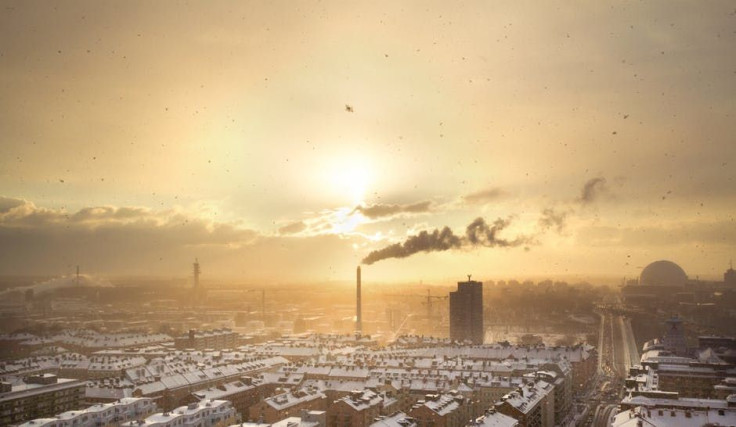Legal Levels Of Air Pollution Can Cut Lives Short; Certain Groups Face Higher Risk Of Early Death

Even small amounts of air pollution, below the legal limit, cut years off of your life, according to new research.
The study, published in the New England Journal of Medicine, assessed the effect of air pollution on 60 million Americans across the country, a majority of whom were 65 years and older. Researchers found a strong link between an early death and long-term exposure to two main pollutants in smog - ozone and fine particulate matter.
The findings also revealed that men, blacks, Asians, Latinos, and lower-income seniors were all at a higher risk of early death from fine particulate matter. According to the EPA, particulate matter comes from sources such as construction sites, unpaved roads, fields, smokestacks or fires. The matter comes in a range of sizes, but the small particles are what’s to blame for the haze that affects national parks and wilderness areas in the U.S.
Read: Vitamin B May Lessen Harmful Effects Of Air Pollution
The analysis revealed that even in locations where air pollution levels meet the “safe” standards set forth by the U.S. Environmental Protection Agency (EPA), study subjects still experienced adverse effects.
“This study shows that although we think air quality in the United States is good enough to protect our citizens, in fact we need to lower pollution levels even further,” study author Joel Schwartz said in a statement.
Harvard University scientists examined ozone and fine particulate matter, both of which make up smog (heavy, dark fog filled with smoke and pollutants). Past research has linked ozone and fine particulate matter to serious health impacts including chronic bronchitis, asthma, and premature death; however, those studies were primarily done on small data sets, TIME points out. Additionally, past research has focused on populations in more urban, wealthy areas, but this study chose to focus on underrepresented groups.
Read: Air Pollution May Be Contributing To Increasing Antibiotic Resistance In Bacteria
Recently the Trump Administration proposed defunding programs that address cleaning up our air as well as other EPA programs.
"Despite compelling data, the Trump administration is moving headlong in the opposite direction," researchers wrote in an editorial accompanying the study. "We must redouble our commitment to clean air. If such protections lapse, Americans will suffer."
Data has shown that millions of deaths every year are a result of air pollution exposure. In 2012 alone, 7 million people worldwide died as a result of exposure to polluted air, which is about 1 in 8 global deaths, according to the World Health Organization.
“The risks from air pollution are now far greater than previously thought or understood, particularly for heart disease and strokes,” Dr. Maria Neira, Director of WHO’s Department for Public Health, Environmental and Social Determinants of Health, said in a 2014 statement. “Few risks have a greater impact on global health today than air pollution; the evidence signals the need for concerted action to clean up the air we all breathe.”
See also: UNICEF: Air Pollution Kills 600,000 Small Children Every Year
High Blood Pressure Causes: City Air Pollution Raises Blood Pressure As Much As Being Overweight



























